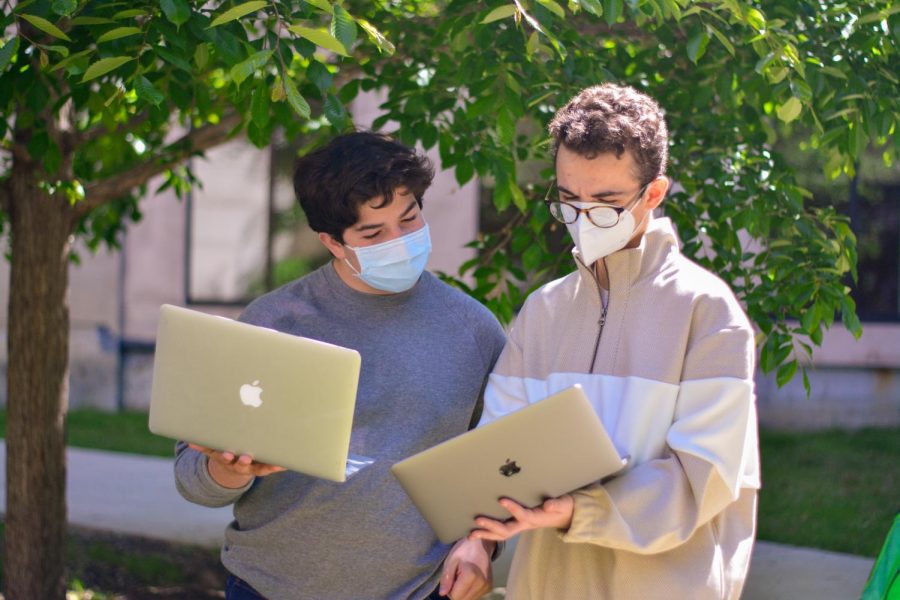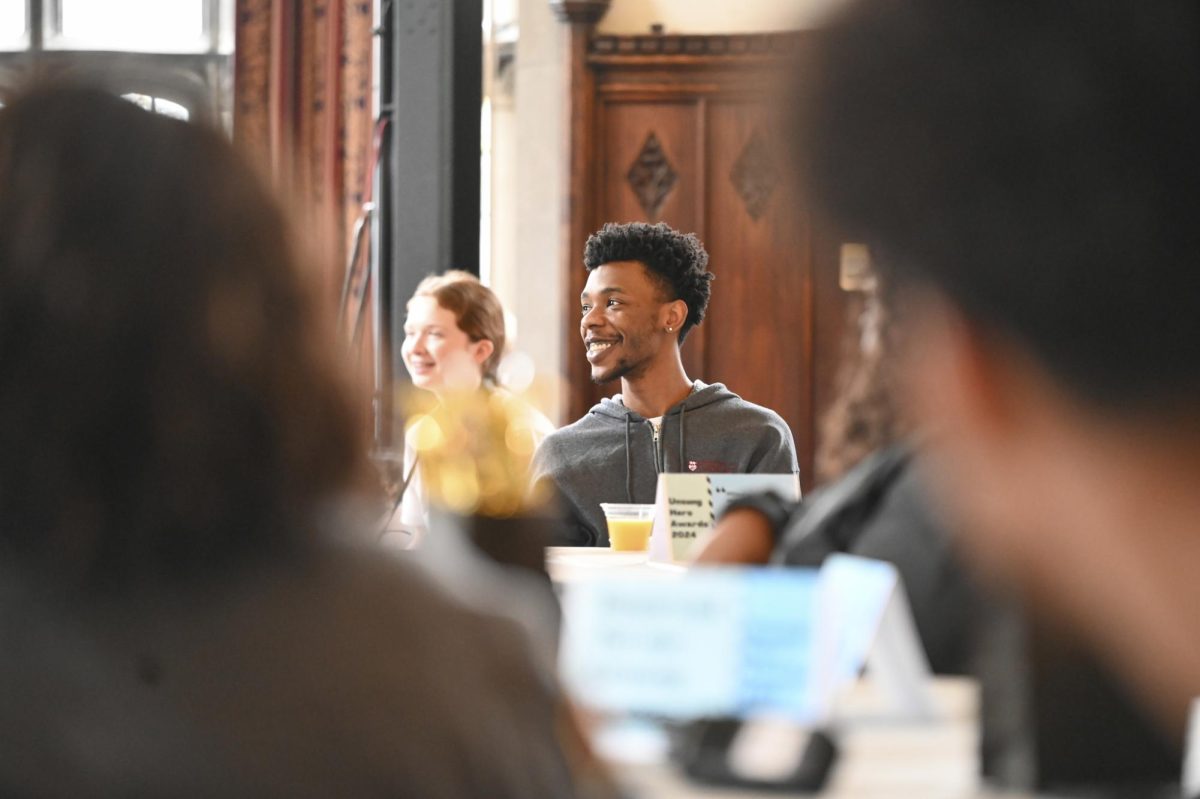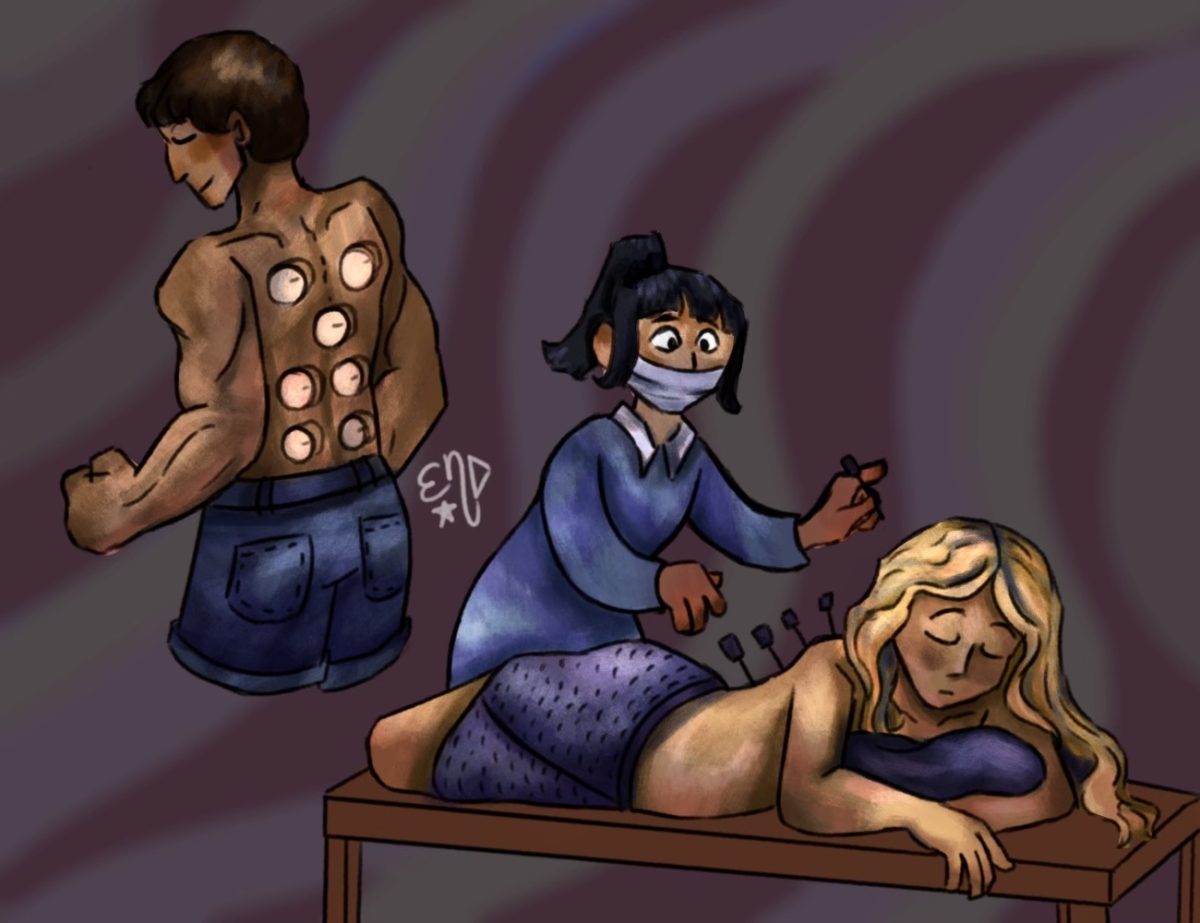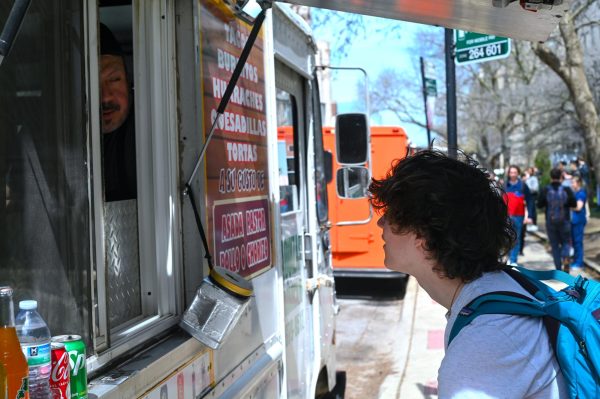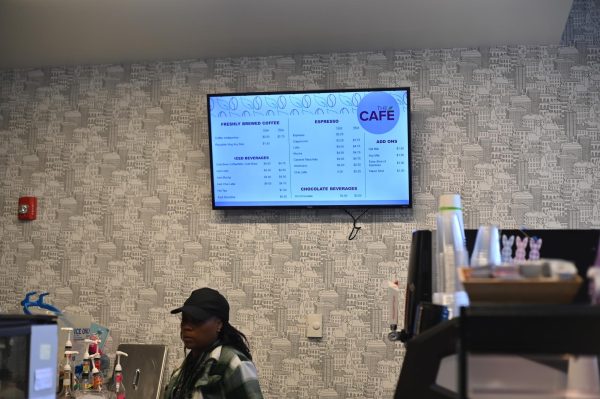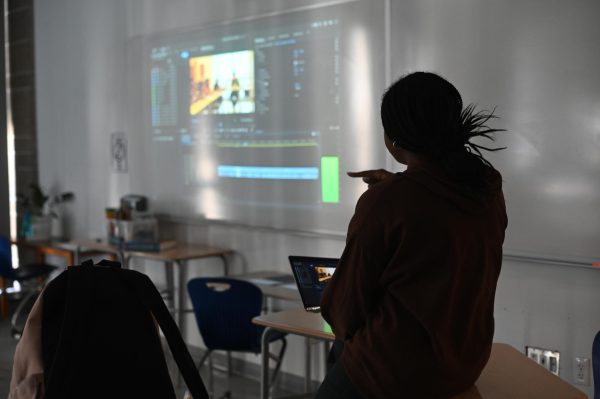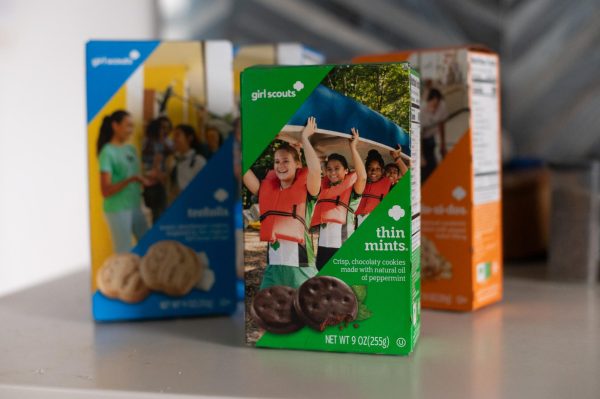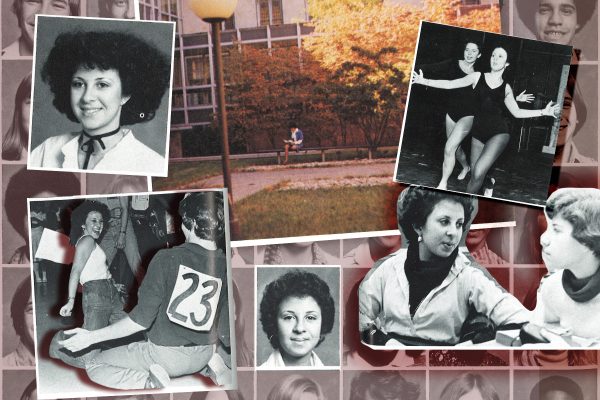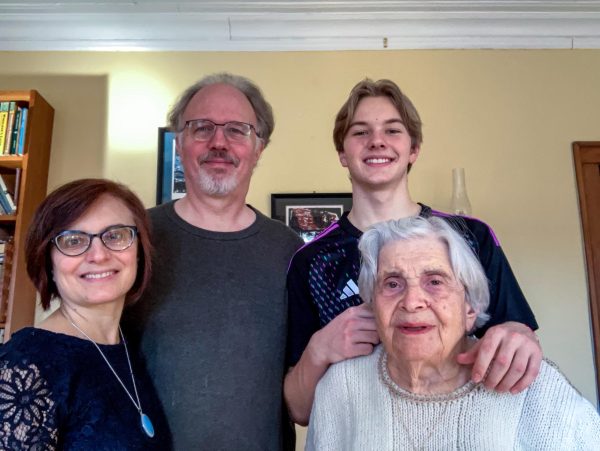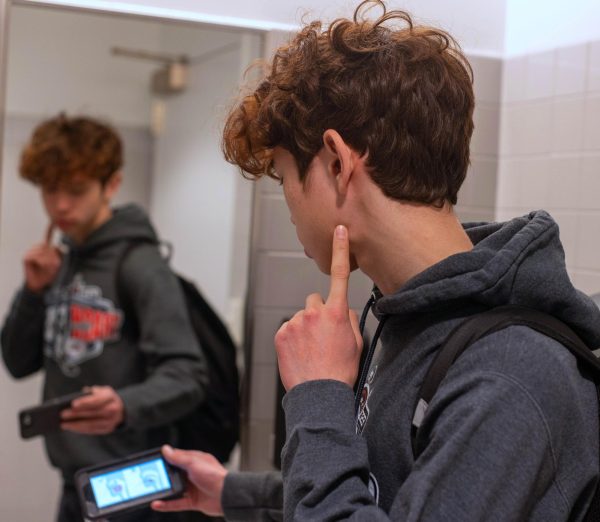Clubs manage leadership transitions after year of distance learning
Juniors Ben Sachs and Saul Arnow, along with the rest of the U-High Progressives club members, will have to navigate adjusting club activities to a more normal school year.
June 3, 2021
Through Google forms and clicking the “raise hand” feature on Zoom, student-led clubs elected their boards for 2020-21. That was last year.
Now, coming out of a year of hybrid and distance learning, some clubs are opting for in-person board elections and planning for next year. However, distance learning, reduced club meetings and fewer new members have made appointing harder in comparison to past years, and some established clubs are welcoming new faculty advisers.
Clubs are where many students meet others who share common interests and socialize with friends. Leadership boards are a key component and are usually elected annually.
“This year I think a lot of clubs had low participants because of the virtual standing and it being hybrid,” Black Students’ Association president Tech Nix said, “so it was hard to find members in the first place to transition into the higher board.”
Difficulty with member recruitment also affected Young Men of Color, according to vice president Kai Billups. He said there was discussion if YMOC would decide to continue as an affinity group, mainly because members are preoccupied with college applications.
I think a lot of clubs had low participants because of the virtual standing and it being hybrid, so it was hard to find members in the first place to transition into the higher board.
— Tech Nix
“The thing is, like, getting new members is pretty hard, especially since we had to, like, focus most of our time on colleges now,” Kai said.
Besides difficulty with member recruitment, BSA is welcoming a new adviser, learning coordinator Heavenly Hicks. Jewish Students’ Association is also transitioning advisers since Susan Shapiro, history teacher and longtime JSA adviser, is retiring.
“She’s definitely like a staple of the club,” JSA president Ava Eggener said. “We always use her room. She’s been doing this since the ’90s, so it’s definitely not going to be the same without her.”
Ava added that the club is close to confirming a new adviser. JSA held its annual board election in person and re-elected mostly the same officers, ensuring stability.
“I think it is very helpful that we have people on the board that have done the position before, especially with Ms. Shapiro, so that carrying over hopefully will make for a smoother transition into next year,” Ava said.
Despite low participation and transition of advisers, clubs are already planning events and projects for next year.
Besides hosting the annual Martin Luther King Jr. assembly, one of BSA’s goals is to work with the English department to add more inclusive books to their curriculum.
“Including more inclusive books about other communities that aren’t really centered around negative aspects of our communities and trying to get more positive ones,” Tech said. “And that’s kind of our goal for next year: to try to, like, create more events that are structured around Black joy, as opposed to Black trauma.”
JSA members are going to continue hosting the biennial Holocaust Remembrance assembly and also try to bring new ideas and events to the club.
“I think no matter what, it’s gonna be a little different, obviously without Ms. Shapiro,” Ava said. “The Holocaust assembly takes up a lot of our time, so hopefully having some of that free time we’ll be able to bring in new events or ideas, especially coming out of COVID. We’d love to try new events and everything, but we will definitely try and carry on our traditions that have been going on for years.”



